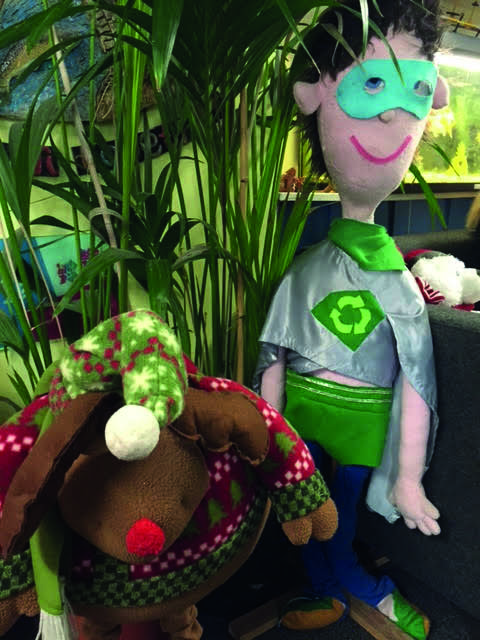
 The final Sustainable Development Goal calls for a global partnership and highlights the need for collaboration across sectors.
The final Sustainable Development Goal calls for a global partnership and highlights the need for collaboration across sectors.
YOU CAN
- Provoke the children to think about how they can work together by giving the simple scenario of a problem, such as helping a younger child on the computer to learn a program.
- Read I Can Share! by Karen Katz. Discuss the different characters and how they find their own solutions.
- Highlight for the children the need to work collaboratively and to listen to each other.
- Introduce the children to key terminology, such as ‘share’; ‘partnership’; ‘achievement’; ‘support’; and ‘strategies’.
Learning links
EYFS (DfE 2021) – an overarching theme is positive relationships and partnership working.
Thinking critically and problem-solving also links with the Characteristics of Effective Learning (DfE 2021) and Development Matters(2021):
- Playing and exploring – children investigate and experience things, and ‘have a go’.
- Active learning – children concentrate and keep on trying if they encounter difficulties and enjoy achievements.
- Creating and thinking critically – children have and develop their own ideas, make links between ideas, and develop strategies for doing things.
Extension activities
- Watch this video together and pause, asking the children what they could make with the same ingredients: https://www.youtube.com/watch?v=cYhgIlTy4yY.

Learning links
Development Matters (2021) Help children to extend their ideas through sustained discussion that goes beyond what they, and you, have noticed. Consider ‘how’ and ‘why’ things happen, and ‘what might happen next’.
Extension activities
- Encourage partnerships – recognising that we all have strengths and weaknesses. By working together, the problems get done because partnerships bring success. Try out this teamwork activity together: https://bit.ly/3Dl6P7A – how can we move the paper without touching it?
- Encourage children to develop thinking strategies. These could be linked to all aspects of sustainability. For example, why has my plant died in the pot on the windowsill, but the same plant outside is fine? From the economic pillar, what food can we buy with the £1.70 in my purse? Or from a socio-cultural perspective – how do we solve conflict and encourage co-operation? Check out: https://bit.ly/3qNkteI.
Learning links
Development Matters (2021) ‘Open-ended questions like “I wonder what would happen if….?” encourage more thinking and longer responses. Sustained shared thinking is especially powerful. This is when two or more individuals (adult and child, or children) “work together” in an intellectual way to solve a problem, clarify a concept, evaluate activities, extend a narrative, etc.’
Extension activities
- Encourage outside collaborations with community groups to join the children in their play and learning, such as intergenerational links.
- Think of ways to support your local community; for example, set up recycle stations for waste or to collect out-grown uniforms and clothes to share within the community. Become a digital community hub and encourage sharing of old computers and technology. You could design an eco-warrior mascot for your setting or write songs or poems to promote your work.
- Set community targets, such as weekly litter-picking, and encourage families to get involved. You could invest in litter-pickers to challenge children’s co-ordination and strength. Check out: https://bit.ly/3Lo12RB.
Learning links
Development Matters (2021) Physical Development – using litter forks and handling the rubbish bags. Help children to develop the core strength and stability they need to support their small motor skills.
FURTHER READING
- ‘An Early Childhood for Sustainability resource that embeds the SDGs and STEM into pedagogical practice’ by Boyd, Neame, King and Mann (NFCE Publications) – download free at: https://bit.ly/33NkF5w
Diane Boyd is a senior lecturer, early years, at Liverpool John Moores University, d.j.boyd@ljmu.ac.uk









